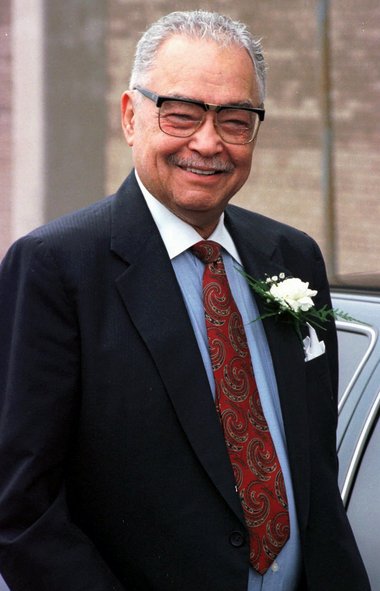
DETROIT — With historic physical planning transformations taking place throughout the city, including the Detroit Riverwalk, Joe Louis Greenway and the I-375 conversion to a surface boulevard, Wayne State University today announced it will offer a comprehensive course on the planning and social transformations pursued and completed by the city’s longest-serving mayor, Coleman A. Young.
Planning and Social Legacies of Coleman A. Young, a spring/summer three-credit course and guest lecture series running on Thursdays at 6 p.m. from May 11 until July 27 on Wayne State’s main campus, is open for registration to Wayne State students, guest students and non-degree-seeking professionals.
Current Wayne State students can visit wayne.edu/register to enroll. Guest students from across the country can enroll at summer.wayne.edu. Non-degree-seeking visitors should call Wayne State’s educational outreach department at 313-577-4682.
The class will feature prominent speakers such as Emmet Moten, former Detroit community and economic development director; Khary Turner, executive director of the Coleman A. Young Foundation; Emeritus Professor of Political Science Bryan Jones, author of The Sustaining Hand; and more.
Third in the series of Wayne State’s Detroit-centric planning courses, it follows the heavily subscribed guest lecture series Detroit: Metropolis in Transition (2014) and The 1967 Detroit Rebellion: Retrospect and Prospect(2017).
Planning and Social Legacies of Coleman A. Young will examine how the early life of Detroit’s first African American mayor shaped his views on the city’s development in his administration, including an important review of Black Bottom, Young’s childhood neighborhood, and once the city’s largest enclave of African Americans before its removal by federal Urban Renewal programs in the 1950s. Also covered will be Young’s pre-mayoral career in labor organizing and state politics, which shaped his views on the social and planning fabric he envisioned for the city during his time as mayor. Required texts include Young’s autobiography Hard Stuff, and Bryan Jones’ The Sustaining Hand, a classic text in urban political economy covering the development of General Motors’ Hamtramck Assembly Plant in the late 1970s.
“While Mayor Young’s legacy is most commonly characterized as that of a polarizing figure during his 20 years in office, there is a largely untold story about his planning successes and failures in what was once the fifth most populous city in the U.S.,” said Jeff Horner, associate professor of teaching in the Department of Urban Studies and Planning. “This exciting course with first-rate guest lecturers, including those whose worked in the Young administration, will attempt to tell the story.”
